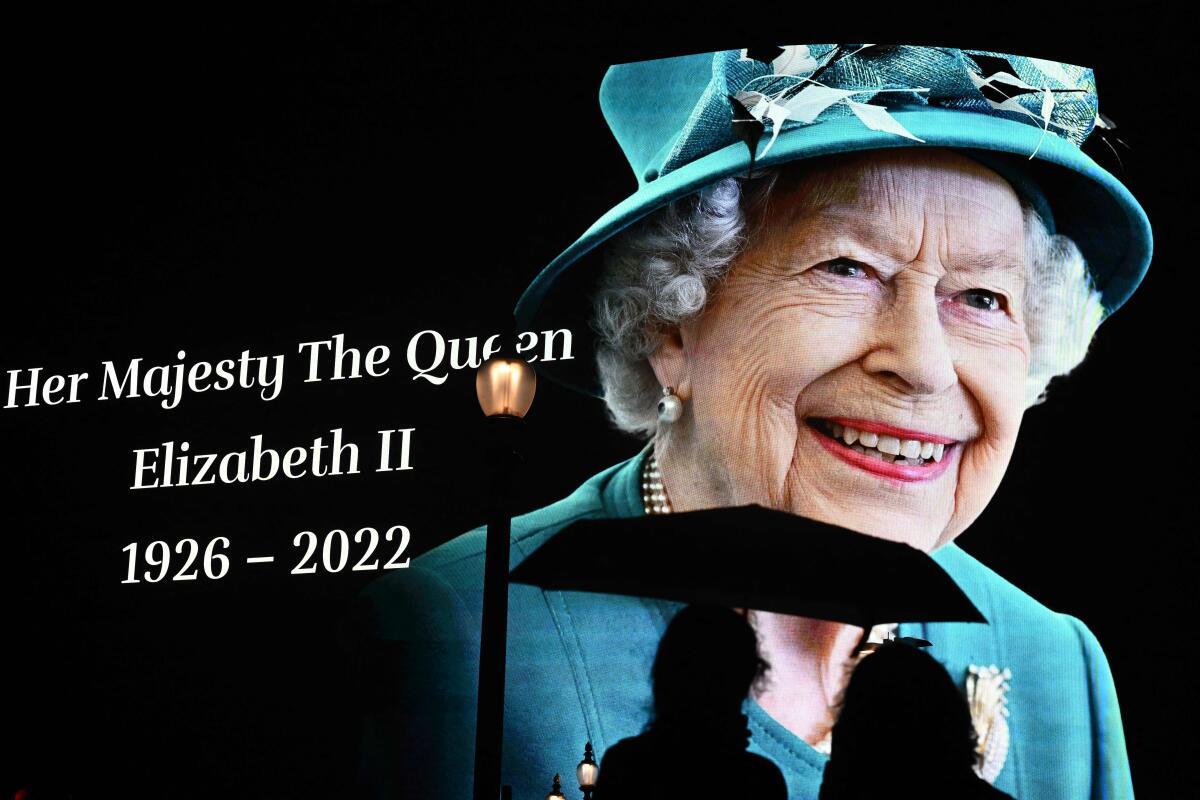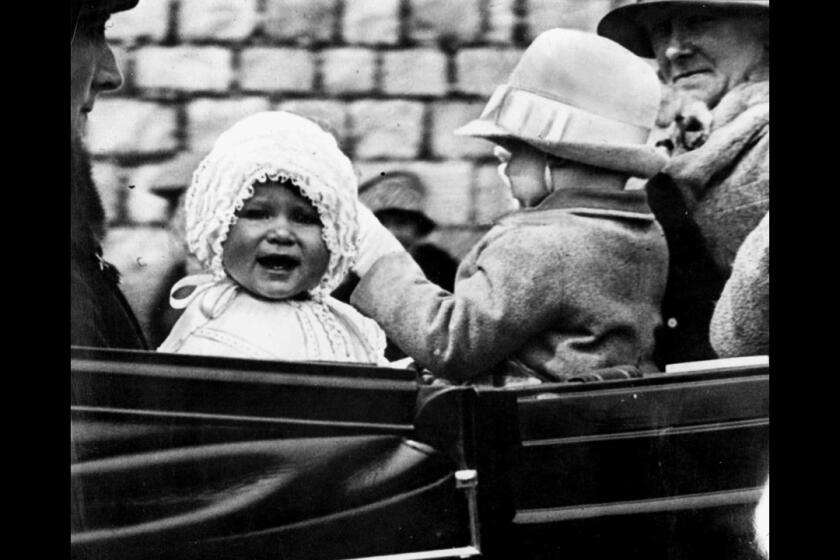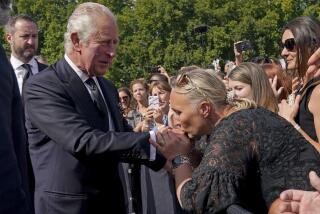Mixed emotions in India on a day of mourning for Queen Elizabeth II

AHMEDABAD, India — On a day of national mourning, emotions over the passing of Queen Elizabeth II ran the gamut in one-time colony India — from expressions of sympathy and sadness from political leaders and Bollywood celebrities to demands on social media for the return of the Kohinoor diamond, currently among the British crown jewels.
“Her Majesty Queen Elizabeth II will be remembered as a stalwart of our times,” tweeted Indian Prime Minister Narendra Modi. “She provided inspiring leadership to her nation and people. She personified dignity and decency in public life. Pained by her demise. My thoughts are with her family and people of UK in this sad hour.”
Others said the queen, and her possessions, continue to symbolize the exploitative nature of colonial rule.
“Flaunting the Kohinoor on the Queen Mother’s crown in the Tower of London is a powerful reminder of the injustices perpetrated by the former imperial power,” wrote Indian lawmaker and author Shashi Tharoor. “Until it is returned at least as a symbolic gesture of expiation it will remain evidence of the loot, plunder and misappropriation that colonialism was really all about.”
Queen Elizabeth’s death ended a remarkable 70-year rule — so long that most of Britain’s 68 million people have known no other sovereign.
The Kohinoor, one of the largest cut diamonds in the world and estimated to be worth more than $200 million, was discovered in the 14th century in southern India. According to the Archeological Survey of India, the Maharaja of Lahore “surrendered” the diamond to Britain’s Queen Victoria in 1849.
Elizabeth, who died Thursday, became queen in 1952, five years after India gained independence, and she visited India in 1971, 1983 and 1997.
On her first trip, the queen toured Mumbai, Chennai and Kolkata, addressed a gathering of thousands of people in New Delhi, and visited the Taj Mahal in Agra in an open-top car, waving to crowds that warmly welcomed her.
Her 1983 journey, in which she presented the Order of Merit to Mother Teresa, also went smoothly.
Her third visit marked the 50th anniversary of India’s independence, and she made a stop at the Jallianwala Bagh, a site in the North Indian city of Amritsar, where British troops had fired upon a peaceful gathering of protesters in 1919. The incident — which British Prime Minister David Cameron referred to in 2013 as “a shameful event in British history” — left hundreds dead.
Many in India expected the queen to deliver a formal apology during that 1997 visit. But she stopped short, saying, “It is no secret that there have been some difficult episodes in our past — Jallianwala Bagh, which I shall visit tomorrow, is a distressing example. But history cannot be rewritten, however much we might sometimes wish otherwise.”
Saiyid Zaheer Husain Jafri, professor of medieval Indian history at Delhi University, said the British authorities have always mistreated and ill-treated the royal houses in India. “The monarchy cannot be detached from this history,” he said. “The colonial rule has left India with legacies we are still struggling with. The British looted India for 200 years.”
For many now in India, however, Elizabeth had, at worst, a benign image, further leavened by her portrayal in the Netflix series “The Crown.”
“I know many people who had no sense of the British royal family, but they watched ‘The Crown,’ were addicted to the show and also connected with Queen Elizabeth on an emotional level,” said Aseem Chhabra, author and festival director of New York Indian Film Festival. “These people were young when Princess Diana died. But the Netflix show gave them a human perspective of the royal family, especially the late queen.”
Her gesture of inviting three members from Mumbai Dabbawala Assn., a tiffin (meal) delivery service, for her son then-Prince Charles’ wedding in 2005 had also been widely appreciated.
The president of the association, Ulhas Muke, 39, said when his colleagues met the queen, they found her “extremely humble.”
“She was curious about us and our work,” he said. “She spoke to us very well. We had never thought some of us would get to see Buckingham Palace. We are saddened by her death.”
More to Read
Sign up for Essential California
The most important California stories and recommendations in your inbox every morning.
You may occasionally receive promotional content from the Los Angeles Times.












